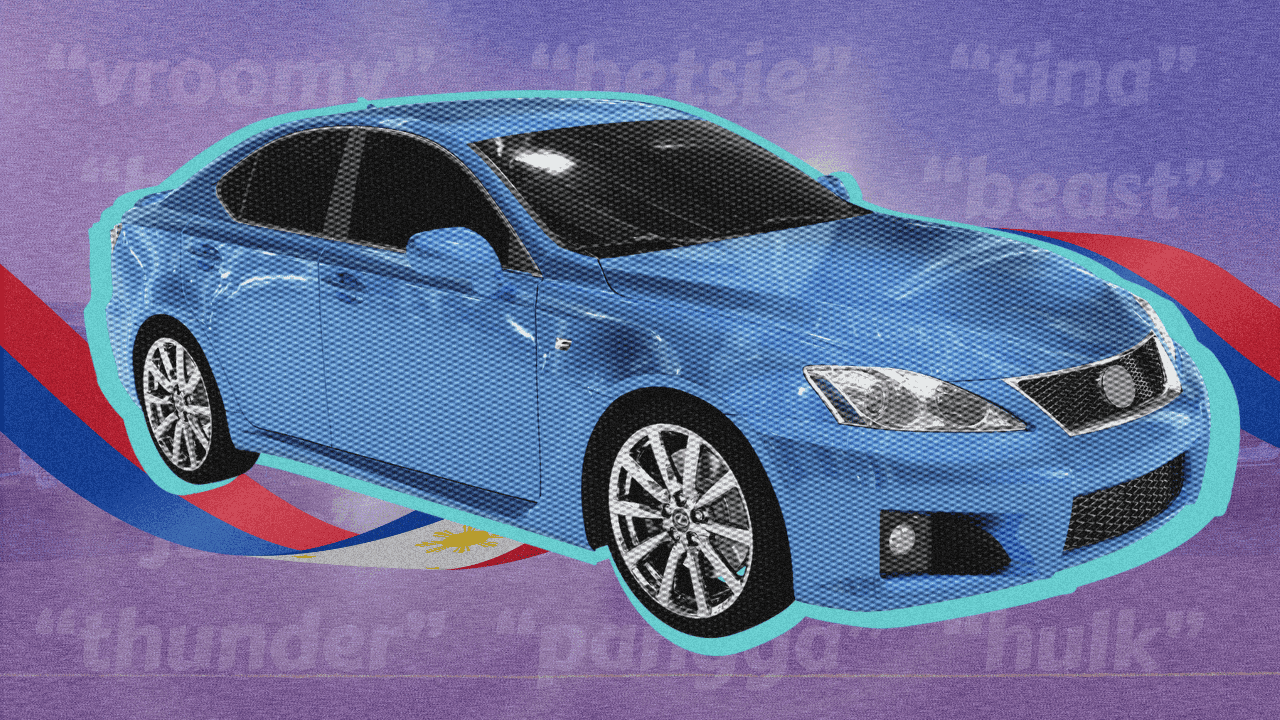Why Filipinos Name Their Cars — and What It Says About Us

For many Filipinos, owning a car isn't just about transportation — it's about pride, comfort, and freedom. And for some, it's also about companionship. That's why so many Filipinos give their cars names — from "Betsie" and "Thunder" to "Blackie" and "Pangga."
But what makes us name our cars like family members or friends? Here's a closer look at why this habit says so much about Filipino culture and our connection to our vehicles.
1. It is a Display of Emotional Connection
Buying a car often represents a major life achievement. Whether it’s a first car or one bought after years of saving, that purchase carries deep emotional weight. Naming it makes that relationship personal.
Many Filipinos even refer to their cars in the same way they would a family member — “ayaw gumana si Betsie,” or “si Blackie, talagang maaasahan.” It’s almost as if the car becomes part of the household, a loyal companion through commutes, long drives, and family road trips.
This connection also comes from the effort it takes to own and maintain a car in the Philippines — from the down payment to the monthly amortization, from fuel costs to maintenance expenses. Giving it a name acknowledges the journey and makes the responsibility feel worthwhile.
2. It Reflects Filipino Humor and Creativity
Filipinos are naturally expressive and witty — and that extends to how we name our cars. Some owners prefer playful names like “Ligaya,” “Vroom-Vroom,” or “Carlo,” while others go for bold or heroic names like “Optimus Prime” or “The Hulk.” For those who truly view their car as an extension of their family, they even give it names that match the family’s initials!
This creativity is part of the Filipino spirit — we find joy in personalization. Whether it's decorating a dashboard with small charms or adding stickers that reflect one's interests, naming the car completes that personal touch.
3. It Shows Pride of Ownership
For many Filipinos, owning a car is not just a convenience — it’s a symbol of success. It signifies progress, stability, and a step forward in life. Giving the car a name personalizes that pride, as if to say: This is mine. I worked for this. I deserve it.
Even those who buy used vehicles share this sentiment. A pre-owned car that's been given a new lease on life often gets a new name too, marking a fresh start for both the owner and the vehicle. It's part of how we celebrate milestones in our own way, turning something practical into something meaningful.
4. It Highlights Our Relationship-Oriented Culture
Filipinos are known for valuing relationships — with family, friends, and even possessions that play a role in daily life. We name our pets, plants, and even our gadgets — so it’s no surprise that cars, which accompany us everywhere, get names too!
For many, it's not just a habit — it's a reflection of care, a trait that is deeply rooted in our culture of pagmamalasakit. More than the sense of responsibility, it implies affection because a car isn't just a machine; it's "kasama" in every journey — rain or shine, workday or weekend.
5. Car Names are Reflections of the Owner
The name you give your car often mirrors your personality:
- Cute or affectionate names (“Baby,” “Mimi,” “Pangga”) – You’re nurturing and emotionally attached to your car.
- Powerful names (“Beast,” “Thunder,” “Boss”) – You like to make a statement and see your car as a source of confidence.
- Funny names (“Badi,” “Vroomy,” “Manong Truck”) – You don’t take things too seriously and use humor to brighten stressful drives.
- Human names (“Betsie,” “Juan,” “Tina”) – You view your car as a companion or even a member of the family.
These names might seem trivial, but they reveal how deeply Filipinos connect emotion to ownership — a blend of sentimentality, humor, and pride.
Key Takeaway
Filipinos naming their cars isn’t just a cultural quirk — it’s a reflection of who we are: hardworking, sentimental, and relationship-driven. We don’t just buy cars; we build connections with them.
Each name — whether funny, heartfelt, or simple — tells a story of achievement and affection. For Filipinos, cars aren’t just vehicles. They’re milestones, partners, and symbols of life’s journey — and just like how we are known for our hospitality, that’s what makes our car culture truly one of a kind.


